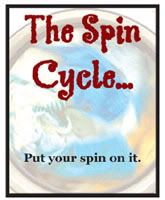It is understandable for people not to flirt when they are in a relationship. This is because it may feel like you are cheating on your partner by doing so. It is also understandable that many people who are not in a relationship will flirt. Perhaps this is because they are trying to impress the other person and make them interested in them, or want to show that they themselves are interested. Of course, these are not hard and fast rules.
What I have found is that the same person will act noticably different and will flirt with you one time, then be defensive and not participate the next. I have witnessed this myself and after some observation, came up with the concept I call The Taken Factor. With it those who are, or are not taken act differently with those who are or are not taken themselves.
- One who is in a relationship is flirted with:
- With flirting, many women will flirt with married men because they know they are "taken". They know that the man thinks of them as forbidden fruit and will not cheat on their spouse, so they can get away with it.
- One who is not in a relationship is avoided:
- Women will not flirt with men who are not married because they don't want the men to reciprocate and make them feel uncomfortable.
- One who is in a relationship will flirt:
- Likewise, many who are not in a relationship and do not flirt may flirt when they are in a relationship. This is because they know they are "taken" and are comfortable in knowing that they can go to their partner if the flirting does not produce. This is not to say that all flirting is trying to take advantage of someone, but normally this is why people tend to back away.
- One who is no longer in a relationship will not flirt:
- Many times if you were known to be in a relationship you want to put up your guard so that single people will not hit on you. Perhaps they think that everybody knows that they have broken up and are afraid that people will flirt with them because they just broke up.
I have found that some of my observations do not have proof— you don't actually ask people if they are or are not in a relationship, so I'll ask you… have you yourself experienced these situations, or even adhered to them yourself? Do tell.

